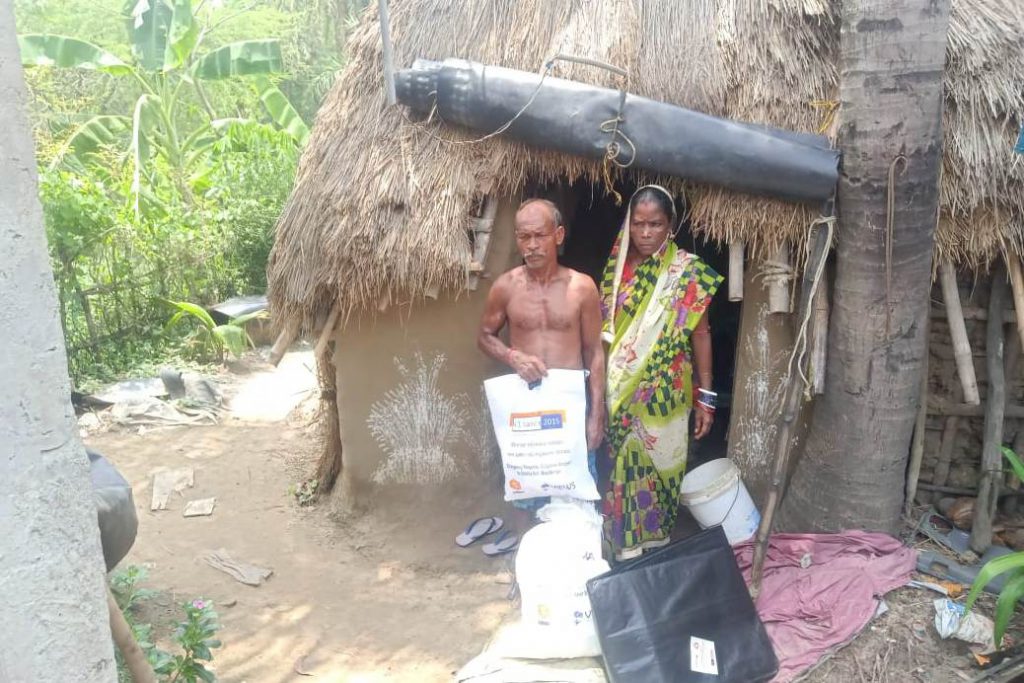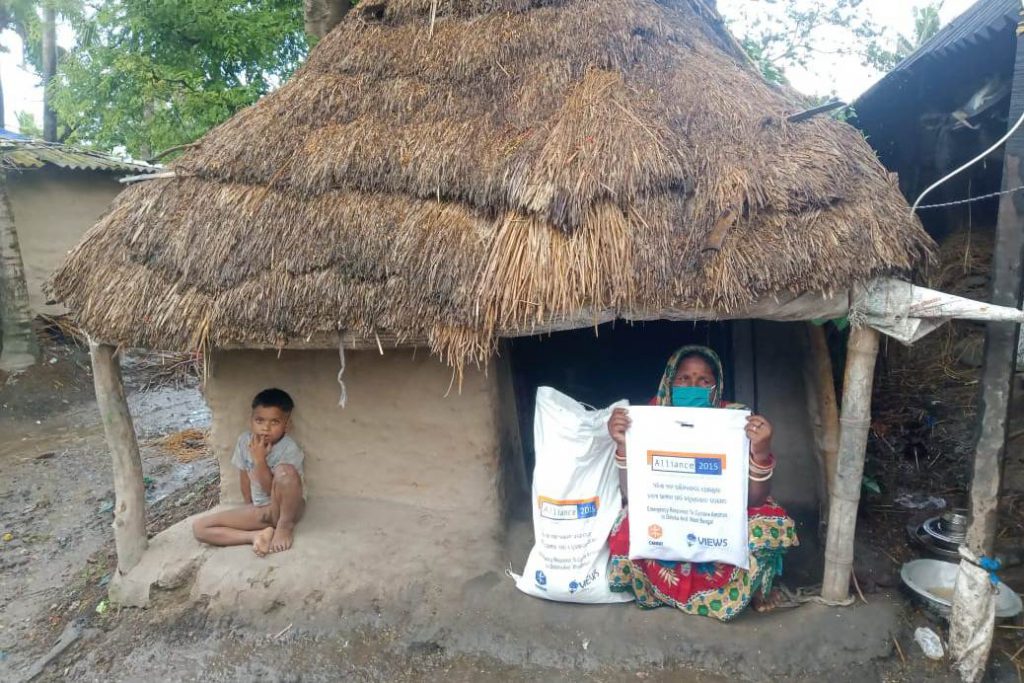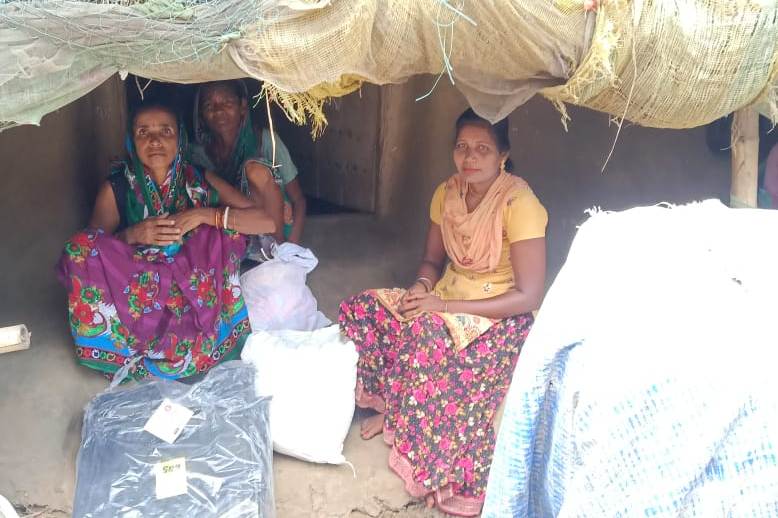Bhubaneswar/Bhadrak: Humanitarian organisations have proved to be a catalyst to restore normalcy in the cyclone-hit villages of Bhadrak district amid COVID-19 pandemic and have enabled the vulnerable people to face the spell of heavy rainfall as predicted by the India Meteorological Department (IMD) on Saturday.
Cyclone Amphan that lashed the region on May 19 triggering gusty winds and heavy rainfall had left behind a trail of destruction, causing extensive damage to thatched houses and electric poles. Further, the COVID lockdown only brought more miseries for the villagers, most of who had lost their livelihood by now because of the extensive damage to crops because of the untimely rain.

“We were the worst sufferers. Our houses were destroyed and roofs were leaking. There was no money to even but the essentials. The masks that were made mandatory by the government was a luxury we could not afford. The situation deteriorated because of intermittent rains that continued for the next two months,” recalls Sumitra Jena, a resident adding that relief and support roped in by voluntary organisations have pulled them out of the miserable situation.
Things would have worsened if not for the timely support received by humanitarian organisations Alliance 2015 and CESVI that provided the families with shelter kits besides food and hygienic kits. The beneficiaries were selected through a household survey conducted by the women SHGs in Basudevpur block and Chandabali block of the district.

Alli Basker, Country Representative of CESVI shared that assistance was provided to the poorest of the poor who were left in penury on the aftermath of cyclone especially the disabled, the elderly and destitute women unable to move out because of the pandemic.
“While the issue of leaking roofs was addressed with the help of shelter kits, there were other untold problems. Adolescent girls in the area facing a lot of difficulties due to unavailability of sanitary napkins. Including sanitary pads in hygiene kits distributed by humanitarian organisations is an excellent move to address the needs of women and ensuring gender sensitivity,” opined Bijayalata Dash, a woman leader from Odisha’s traditional fisherman union.

“People with disability are the most vulnerable people during the pandemic and we tried to address their needs on priority basis,” informed Program Manager of CESVI, Deepa Thakur.



